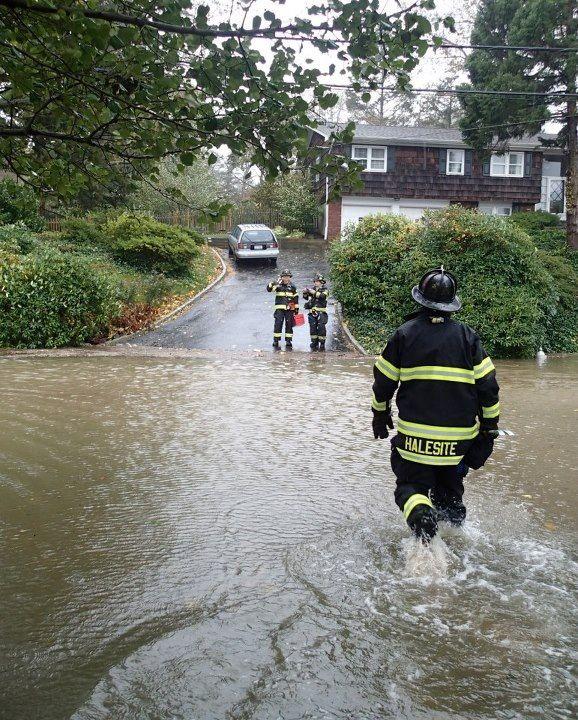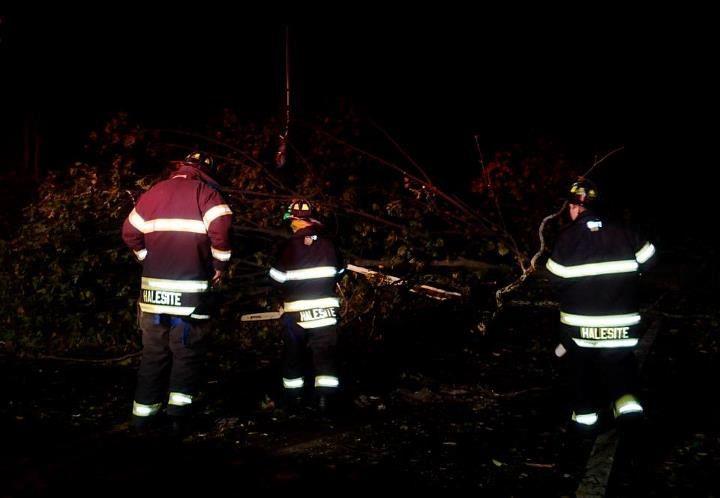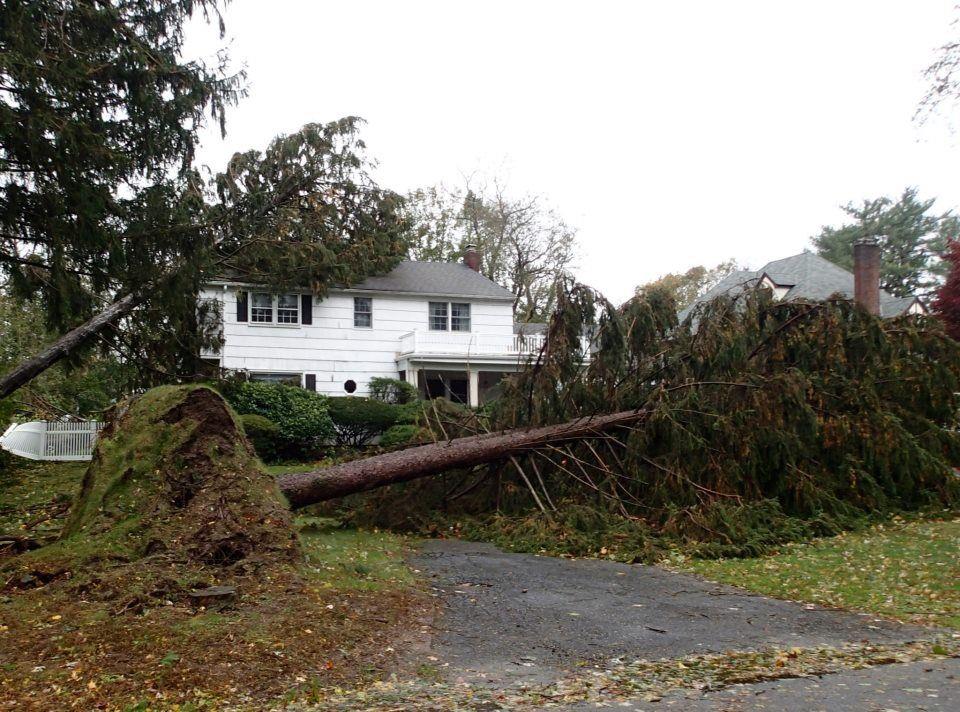Letter from the Chief-Hurricane Preparedness
Thursday, September 26, 2013
 Firefighters faced flooding as one of the major obstacles to reaching residents in their homes. Firefighters faced flooding as one of the major obstacles to reaching residents in their homes. Our membership also worked throughout the storm to clear the roads of downed trees so that in an emergency, our firetrucks and ambulances could reach homes. Our membership also worked throughout the storm to clear the roads of downed trees so that in an emergency, our firetrucks and ambulances could reach homes. In the aftermath of Superstorm Sandy, many homes and streets had downed trees and wires, and we were left without power for quite some time. In the aftermath of Superstorm Sandy, many homes and streets had downed trees and wires, and we were left without power for quite some time.
As we learned last year, in the event of a serious storm, local officials and relief workers cannot reach everyone immediately. Help may not arrive for hours or days. Electric power may be lost for days or even weeks. You need to be prepared ahead of time because you won't always have time to run to the grocery store or search for the supplies you will need when a disaster strikes. Here are some things to consider before, during and after a storm:
Before
. Have a hurricane disaster plan: Locate local shelters. Map the route to a nearby shelter; this will cut down on the travel time. Make sure you know how to get there in case an evacuation order is issued. Fire Departments are not designated shelters and are not prepared to take in residents evacuating from the storm. The American Red Cross will post designated shelter sites on their websites, and these sites will also be listed on local news stations. In the past, Walt Whitman High School has been our closest shelter for the public.
. If you are not ordered to evacuate, find shelter in your home. The safest place during a hurricane is an interior room without windows. Get your home and yard ready for a hurricane. Remove dead and diseased trees and branches; identify items in the yard that should be brought inside; clean rain gutters, outside stairwells, window wells, drain lines, and downspouts.
. Family members can become separated during a hurricane. Be prepared by creating a plan for how to reach one another. Establish an out-of-area contact (such as a relative or family friend) who can coordinate family members' locations and information should you become separated. Make sure children learn the phone numbers and addresses, and know the emergency plans.
. Prepare a family disaster supplies kit. Families with children should have each child create their own personal pack.
. Decide how to take care of pets. Pets are not allowed in places where food is served - so you will need to have a place to take your pets if you have go to a shelter.
. Post emergency phone numbers (fire, police, ambulance, etc.) by the phone.
During
. Remain inside, away from windows and doors.
. During power outages try to avoid carrying a lit candle. Use flashlights instead. Don't use a lit candle when searching for items in a confined space. Never use a candle for a light when checking pilot lights or fueling equipment such as a kerosene heater or lantern. The flame may ignite the fumes.
. Do not be fooled by the calm when the eye of the hurricane is above your area; the worst of the storm is probably yet to come.
. If you are evacuated, take your family disaster supplies kit and leave immediately to a nearby shelter.
After
. Continue to listen to the news and weather updates. Often when the storm is over, damage still exists from floods, downed power lines, and electrically charged water.
Stay out of buildings that have been damaged or flooded and obey detour and warning signs when driving. Never enter a flooded or barricaded roadway (even with a large vehicle) vehicles can be swept away by only two feet of water.
. Do not leave your home to "tour the damage". Emergency workers (LIPA, National Grid, Firefighters) will be out repairing damages and you don't need to be in their way. Also, the potential for branches or other debris to still be falling is high; you don't want to be injured.
. If you lost power during the storm, it may come back on while you are not home. Be sure that all appliances are shut off so that if power is restored, they aren't running without your knowledge.
In the event of another "Superstorm Sandy", or just the next hurricane, we'll do our best to keep Halesite's roads clear of downed trees and branches so that our fire equipment and ambulances can get through in the event that you have any type of emergency in your home.
For more information on how to prepare for all types of disasters, please visit http://www.ready.gov/be-informed. You can also sign up for the Town of Huntington's weather and public safety notification system at http://www.huntingtonny.gov/content/13876/19963.aspx . A text alert can be sent to your mobile device, or you can receive a call at home.
Stay Safe!
Dan McConnell
Chief of the Halesite Fire Department
|
 |
|



|
|
CALENDAR OF EVENTS
|
<< | Wednesday, January 7, 2026 | >> |
|
|
|
|
|
|
QUESTIONS FOR THE CHIEF? |
| The Chief is always available to answer any Halesite FD and saftey questions...click here. |
|
|
|
|
|
JOIN OUR EMAIL NEWSLETTER |
|
|
|
| Receive important notices about fire safety, upcoming events, and other important information about the Halesite Fire Department. |
|
|